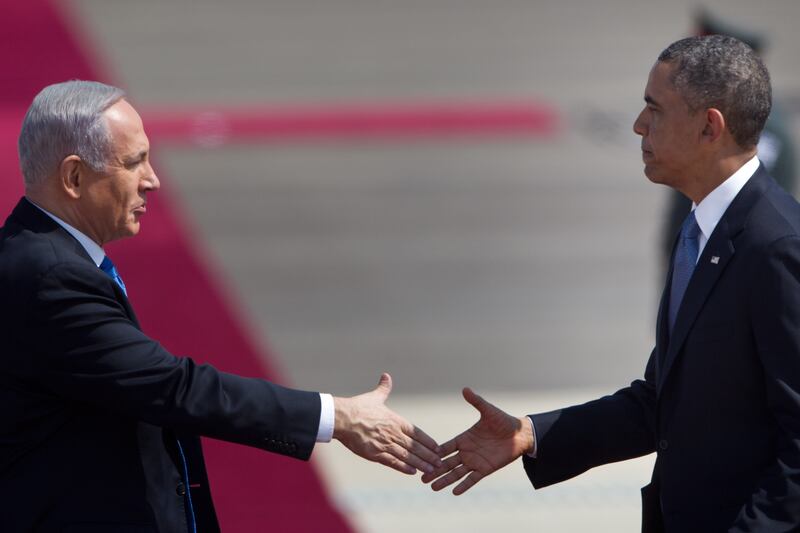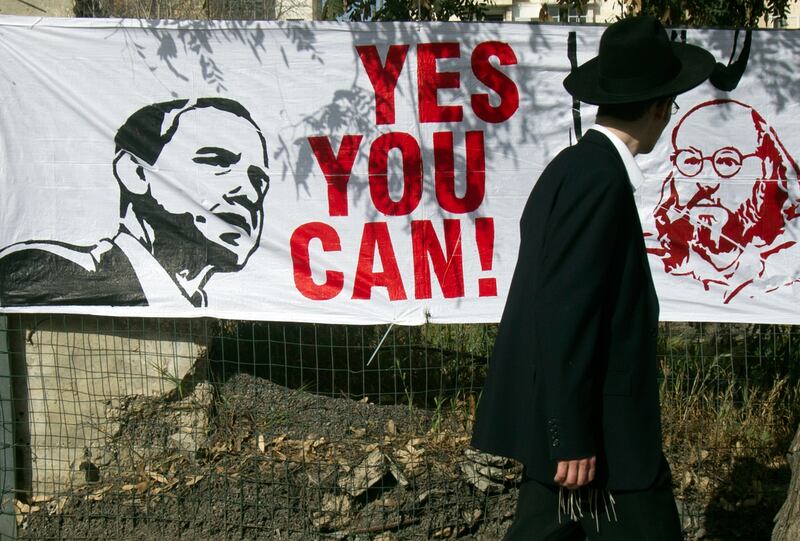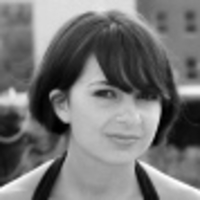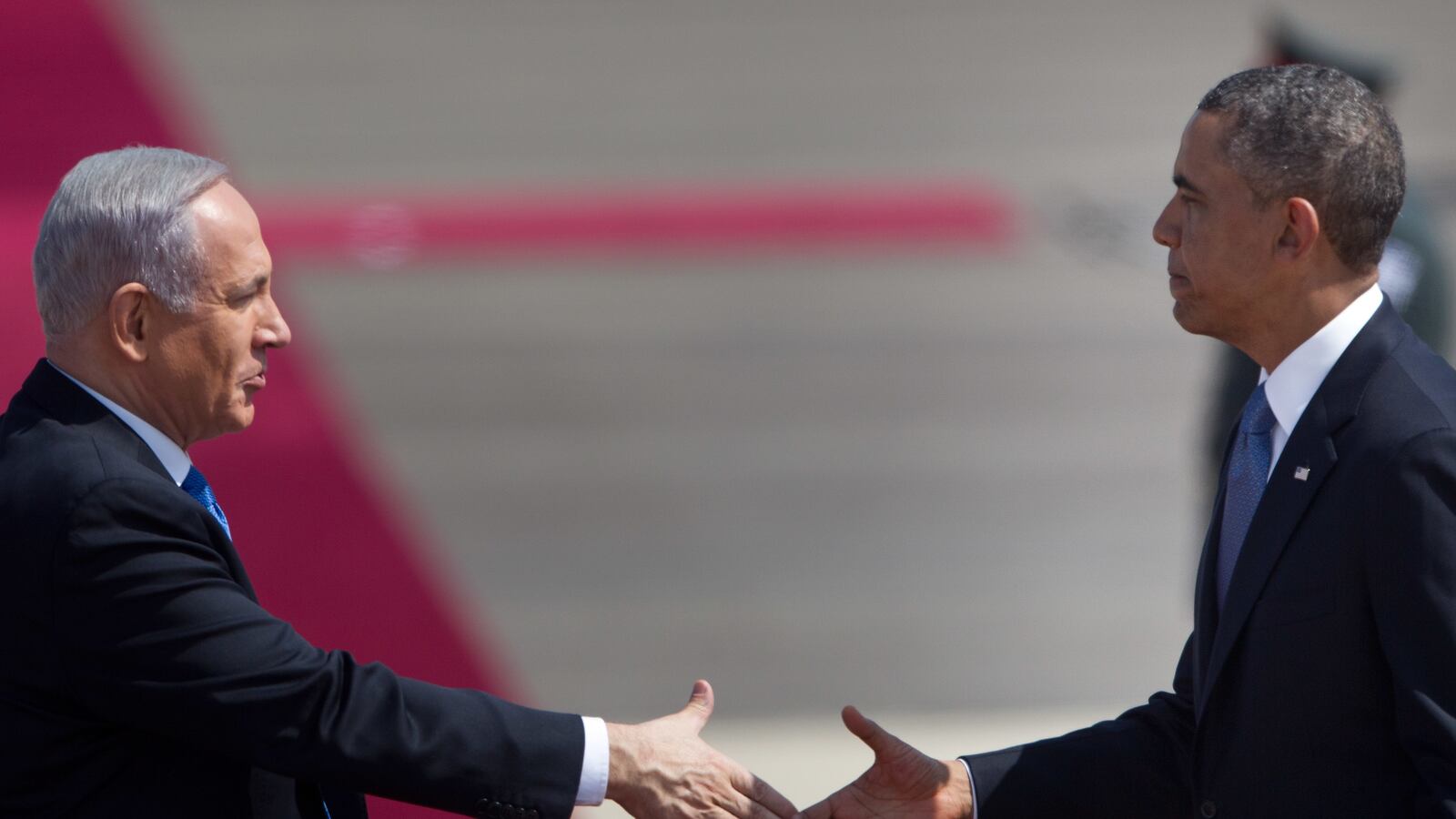Today, while President Barack Obama was landing in Tel Aviv, I was stopped at the checkpoint between Ramallah and Jerusalem. Although this is a notoriously difficult checkpoint, security was tightened for the arrival of the American president.While I was waiting to hear whether or not I would be able to travel to Jerusalem, President Obama stepped off of Air Force One and greeted the masses with a simple “Shalom.” The crowd went wild.

Meanwhile, I replied “todah”—thank you in Hebrew—to the two young Israeli Defense Forces (IDF) soldiers who graciously informed me that I needed to wait five minutes before the police came to verify my identity and see if I could pass from Ramallah to Jerusalem. When I said, “Shalom, Officer” he seemed less than impressed. He wanted to know if I spoke Arabic, and if I had any Palestinian blood—he insisted that I did.
During that time, President Obama gave a speech to the political leaders, religious leaders, military leaders and press who assembled for his arrival. He did not mention Palestine once.I didn’t mention Palestine either. In my experience, it is easier to get around the Israeli authorities if you don’t mention Palestine. It seems like this might be the case in Barack Obama’s experience, too.
In a not-so-distant but still alternate universe, President Barack Obama would not have been such a close friend of Israel. If Barack Hussein Obama—the community organizer from the south side of Chicago—had taken a trip to Israel, he would have certainly been pulled aside at the airport for “routine questioning.” We might have even met in Ben Gurion Airport’s infamous “VIP” room, where anyone who is being questioned—mostly Arab and Muslim travellers—are asked to wait between interrogations. The Israeli border authorities would have tried to figure out just how much Arabic I really spoke. They would have tried to figure out just how Muslim he really was. We would have shaken our heads together.
Instead, Barack Hussein Obama—the community organizer from Chicago—became President Barack Obama—the leader of the free world and Israel’s closest ally. Today he stepped off of Air Force One in a white shirt and a blue tie—a clear nod to Israel and coincidentally matching with Israeli Prime Minister Benjamin Netanyahu.
Just a few hours before his arrival, Jerusalem was already preparing to wish him a warm welcome. All along the main road that leads from the Old City to the New City were signs saying “Unbreakable Alliance: Obama in Israel 2013.” The signs featured a fusion of the Israeli and American flags, with the blue Star of David as the star and the red stripes of the United States as the stripes.
“I think that it’s great that Obama is here for us in this difficult moment,” Maria, a Spanish immigrant to Israel who didn’t share her last name, told me. “I am happy that he is choosing to stand with Israel.”
Maria made aliyah one year ago and is now working in a tourist shop in Jerusalem’s Zion Square. One of the T-shirts says, “Don’t worry, USA—Israel is behind you” with a silk-screen image of a fighter jet.
A few doors down, I heard a group of boys wearing yarmulkes speaking English. It turned out they were American, here on a Birthright-like two-month trip to Israel, designed for American Jews to connect to the Homeland.
“We just watched the arrival on TV and everyone was going crazy,” Samuel, one of the boys, told me. “It’s so cool that he is here.”
They were next to a shop selling yarmulkes with the logos of American sports teams on them—just another symbol of the deeply entrenched alliance between Israel and the United States.
“We’re so excited to see the motorcade later,” they said, grinning.
I wandered away from the tourist-ridden Zion Square towards the Jerusalem Light Rail station on Jaffa Street.
“I want Obama to free Jonathan Pollard,” said one young man who was waiting for the train, and identified himself as Uri but preferred not to give a last name. “I want this and only this.”

Jonathan Pollard is an American spy who is serving a life sentence for passing on classified information to Israel. Many see President Obama’s visit as an opportunity to bring his case into the mainstream foreign policy discussion. Last night, several Israelis gathered in Jerusalem holding signs in support of Pollard—asking President Obama to address his imprisonment during this visit. On the outskirts of Jerusalem, there are signs that show depictions of both President Barack Obama and Jonathan Pollard with the slogan, “Yes You Can!” printed between the images.
On the bus ride back to Ramallah, a flying checkpoint—an impromptu checkpoint installed for security reasons—surprised us at the first sight of the Wall between Jerusalem and Ramallah. IDF soldiers boarded the bus, checking IDs and giving instructions in Hebrew that were unintelligible to most of the bus’s passengers.
Back in Ramallah, a new sign that says “We will strictly reject the American Zionist refusal of our right of return” now hangs in the city’s central Al-Manara Square.




